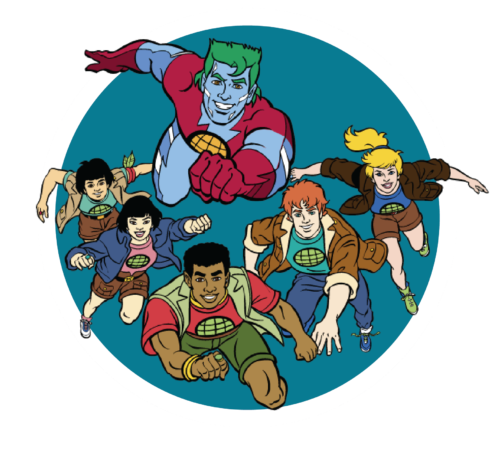
ecoSolution Challenge
Powered by

ATTENTION ATLANTA METRO TEACHERS!
What are some ways you can help our planet? One place to start is right in your own school cafeteria! Did you know across the U.S., school cafeterias produce a LOT of waste — food and trash. An average student produces about 67 pounds of waste in the cafeteria every year, which means that an average sized elementary school produces 10 TONS of waste every year (that’s like 5 elephants)!
All that food waste goes into landfills and contributes to the greenhouse gas emissions into our atmosphere; and non-compostable or recyclable trash that comes from our lunch rooms — food wrappers, plastic straws and bottles, styrofoam, etc. — are contributors to air and water pollution.
Your challenge is to develop a strategy for reducing the waste that gets sent to the landfill from your school’s cafeteria.
Challenge Question
How can we reduce the amount of waste produced and thrown away by our school’s cafeteria?
Your task in a few steps:
- Determine what kinds of waste and how much of it is currently being produced in your school’s cafeteria and where is the waste going.
- Discuss and decide what are the best strategies to reduce the total amount of waste going to the landfill.
- Design a plan to reduce the amount of waste going to the landfill from your cafeteria.
- Test your plan and measure the waste reduction from your plan.
- Revise your plan based on lessons you learned in your test.
- Present your plan in a pitch presentation to judges.
Questions to Consider
- How much waste does your school cafeteria produce on an average day? What are some ways you can measure it?
- What types of waste are thrown away in your cafeteria?
- Where does all of the waste go right now? Where could it go?
- Why is food being thrown away? Do students have too much? Do they not like the way it tastes?
- What kinds of food packaging and serving materials (i.e. trays, utensils, bags) are thrown away? Are there alternatives that don’t get thrown away? Are there other options for disposing of waste rather than throwing it away?
Challenge Submission
A class or student group (i.e., club) should plan to submit a video presenting their cafeteria waste reduction strategy that includes:
- Why you think it’s important to reduce waste from the cafeteria;
- A measurement of how much waste was going to the landfill from your cafeteria before your proposed design solution;
- Your proposed strategy(-ies) for reducing the amount of waste going to the landfill;
- An estimate of how much less waste will go to the landfill with your design solution;
- What you will need to make your plan a reality.
Don’t limit yourself to thinking just about the disposal of waste — you can also consider ways that waste can be captured and turned into something useful or valuable.
The presentation video should not be longer than 10 minutes and should include visuals to illustrate your proposal.
Videos should be uploaded to the form below by May 20, 2022 at 5pm EST.
The student groups that submit strategy designs demonstrating the greatest potential reductions in waste (by volume) going to the landfill from your school’s cafeteria will receive cash prizes to help support long-term waste reductions.
How to Take Part
Criteria & Eligibility
- This challenge is open to elementary and middle schools in the Atlanta Metro Area that are engaged with CPF’s Project Learning Garden or Project Hero program.
- Proposal should be youth-led.
Review of Submissions & Winners
Submissions will be reviewed by a panel of judges using THIS RUBRIC. Top ranked submissions from an Elementary and Middle School groups will each be awarded a $500 prize to support implementation of their proposal in their school cafeterias. Runner-ups for Elementary & Middle School will each receive $250.
Recommended Resources for Educators
- Guide to Conducting Student Food Waste Audits (USDA, EPA, Univ of AR)
- Reducing Food Waste: What Schools Can Do Today (Infographic by USDA)
- What you Can Do to Help Prevent Wasted Food (Guide by USDA)
- Food Waste Warriors: A Deep Dive into Food Waste in US Schools (2019 report by WWF)
- Cafeteria Culture resources
- Smarter Lunchrooms Movement How to Build a Smarter Lunchroom Handbook

